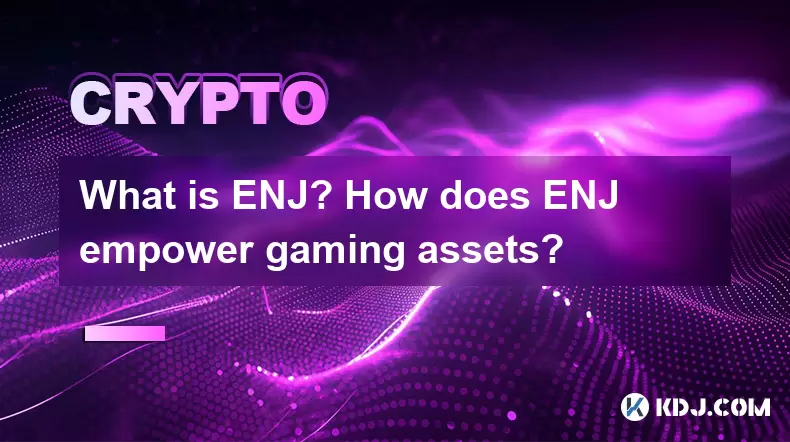-
 Bitcoin
Bitcoin $117700
-1.00% -
 Ethereum
Ethereum $4458
-3.91% -
 XRP
XRP $3.119
0.14% -
 Tether USDt
Tether USDt $1.001
-0.02% -
 BNB
BNB $836.6
-1.56% -
 Solana
Solana $189.5
-3.90% -
 USDC
USDC $0.9998
-0.02% -
 Dogecoin
Dogecoin $0.2335
1.29% -
 Cardano
Cardano $0.9642
1.51% -
 TRON
TRON $0.3539
-1.19% -
 Hyperliquid
Hyperliquid $47.41
-1.84% -
 Chainlink
Chainlink $21.92
-3.28% -
 Stellar
Stellar $0.4286
-0.23% -
 Sui
Sui $3.724
-3.29% -
 Bitcoin Cash
Bitcoin Cash $594.8
-0.78% -
 Ethena USDe
Ethena USDe $1.001
0.04% -
 Hedera
Hedera $0.2501
-2.06% -
 Avalanche
Avalanche $23.96
-4.87% -
 Litecoin
Litecoin $119.0
-2.32% -
 Toncoin
Toncoin $3.473
0.82% -
 UNUS SED LEO
UNUS SED LEO $9.596
0.17% -
 Shiba Inu
Shiba Inu $0.00001301
-0.39% -
 Uniswap
Uniswap $11.03
-0.25% -
 Polkadot
Polkadot $3.935
-2.62% -
 Dai
Dai $1.000
0.01% -
 Bitget Token
Bitget Token $4.564
-1.76% -
 Cronos
Cronos $0.1512
-4.11% -
 Ethena
Ethena $0.7306
-1.09% -
 Pepe
Pepe $0.00001087
-2.68% -
 Aave
Aave $300.2
-4.00%
What is ENJ? How does ENJ empower gaming assets?
ENJ, launched by Enjin in 2017, empowers gamers to own, trade, and monetize in-game assets using blockchain technology, enhancing gaming economies.
May 12, 2025 at 11:49 am

ENJ, short for Enjin Coin, is a cryptocurrency specifically designed to empower and enhance the world of gaming assets. Launched in 2017 by Enjin, a leading blockchain ecosystem for gaming, ENJ serves as the backbone for creating, managing, and trading digital assets within games. The primary goal of ENJ is to bridge the gap between traditional gaming and blockchain technology, enabling gamers to truly own, trade, and monetize their in-game assets.
What is ENJ?
ENJ is an Ethereum-based token that operates on the Ethereum blockchain. It was created to address the limitations of traditional in-game economies, where assets are often controlled by game developers and cannot be freely traded or transferred outside of the game. By integrating ENJ into games, developers can create blockchain-based assets that players can own and control, giving them unprecedented freedom and value.
How Does ENJ Empower Gaming Assets?
ENJ empowers gaming assets in several key ways. Firstly, ENJ enables the creation of unique, blockchain-backed digital assets. These assets, often referred to as non-fungible tokens (NFTs), are unique and verifiable on the blockchain, ensuring their authenticity and ownership. This means that players can own rare items, skins, or characters that are truly theirs and can be traded or sold at their discretion.
Secondly, ENJ facilitates the trading and exchange of gaming assets. Through the Enjin ecosystem, players can list their assets on marketplaces where other players can buy, sell, or trade them. This creates a dynamic economy where the value of assets is determined by supply and demand, rather than being arbitrarily set by game developers.
Thirdly, ENJ allows for the integration of assets across different games and platforms. Because ENJ assets are based on blockchain technology, they can be used in multiple games that support the Enjin ecosystem. This interoperability means that players can take their favorite assets with them as they move from one game to another, enhancing the overall gaming experience.
The Role of the Enjin Platform
The Enjin platform plays a crucial role in empowering gaming assets with ENJ. The platform provides developers with tools to easily create and manage blockchain-based assets. This includes the Enjin Wallet, which allows users to store, send, and receive ENJ and other tokens, and the Enjin Marketplace, where assets can be bought and sold.
Additionally, the Enjin platform offers the EnjinX blockchain explorer, which allows users to track and verify the ownership and transactions of their assets. This transparency and security are fundamental to the trust and value of blockchain-based gaming assets.
Benefits of ENJ for Gamers
For gamers, ENJ offers numerous benefits. Firstly, it provides true ownership of in-game assets. Unlike traditional games where assets are merely licensed, ENJ-backed assets are owned by the player, giving them the ability to control and monetize their assets as they see fit.
Secondly, ENJ enables players to earn real value from their gaming activities. By trading or selling their assets, players can convert their in-game achievements into real-world value, creating new opportunities for earning and investment.
Thirdly, ENJ enhances the gaming experience by fostering a more dynamic and engaging economy. With the ability to trade and exchange assets, players can participate in a vibrant marketplace, adding a new layer of strategy and excitement to their gaming experience.
Benefits of ENJ for Game Developers
For game developers, ENJ offers significant advantages as well. Firstly, it provides a new revenue stream through the creation and sale of blockchain-based assets. Developers can monetize their games in new ways, offering unique and valuable assets that players are willing to pay for.
Secondly, ENJ helps developers build more engaged and loyal communities. By giving players true ownership and the ability to trade assets, developers can create a more invested player base that is more likely to stay engaged with the game over time.
Thirdly, ENJ simplifies the process of creating and managing in-game economies. With the Enjin platform, developers can easily integrate blockchain technology into their games, reducing the complexity and cost of managing in-game assets and economies.
How to Use ENJ in Gaming
Using ENJ in gaming involves several steps, which can be broken down into the following process:
Create an Enjin Wallet: To start using ENJ, players need to create an Enjin Wallet. This can be done by downloading the Enjin Wallet app from the app store or accessing it through a web browser. Follow the prompts to set up a new wallet, ensuring to securely store your recovery phrase.
Acquire ENJ: Once the wallet is set up, players need to acquire ENJ. This can be done by purchasing ENJ from a cryptocurrency exchange and transferring it to the Enjin Wallet, or by participating in games and activities that reward ENJ.
Integrate ENJ into Games: Players can then use their ENJ to purchase or create blockchain-based assets within games that support the Enjin ecosystem. This typically involves navigating to the in-game marketplace or store and selecting the desired assets.
Trade and Manage Assets: With ENJ-backed assets in hand, players can trade or sell them on the Enjin Marketplace or other supported platforms. They can also manage their assets within the Enjin Wallet, tracking their value and ownership.
Participate in the Ecosystem: Finally, players can participate in the broader Enjin ecosystem, joining communities, participating in events, and exploring new games and opportunities to use their ENJ and assets.
Frequently Asked Questions
Q: Can ENJ be used in any game, or only those that support the Enjin ecosystem?
A: ENJ can only be used in games that have integrated the Enjin platform and support blockchain-based assets. However, the Enjin ecosystem is growing, and more games are adopting ENJ, increasing its utility and reach.
Q: Is there a risk of losing my ENJ-backed assets if a game shuts down?
A: One of the benefits of ENJ-backed assets is that they are stored on the blockchain, not within the game itself. Therefore, even if a game shuts down, players can retain ownership of their assets and potentially use them in other games that support the Enjin ecosystem.
Q: How secure is the Enjin Wallet for storing ENJ and other assets?
A: The Enjin Wallet is designed with security in mind, using advanced encryption and security protocols to protect users' assets. However, as with any cryptocurrency wallet, it is crucial for users to follow best practices, such as securely storing their recovery phrase and being cautious of phishing attempts.
Q: Can I convert my ENJ-backed assets back into traditional currency?
A: Yes, ENJ-backed assets can be sold on the Enjin Marketplace or other supported platforms for ENJ, which can then be converted into traditional currency through a cryptocurrency exchange. This process allows players to monetize their gaming assets in the real world.
Disclaimer:info@kdj.com
The information provided is not trading advice. kdj.com does not assume any responsibility for any investments made based on the information provided in this article. Cryptocurrencies are highly volatile and it is highly recommended that you invest with caution after thorough research!
If you believe that the content used on this website infringes your copyright, please contact us immediately (info@kdj.com) and we will delete it promptly.
- Kazakhstan's Crypto Leap: Bitcoin ETF and Central Asia's Digital Finance Future
- 2025-08-13 12:45:19
- BlockDAG Presale Blazes Past $371M: Fundraising Frenzy Fuels Crypto Sensation
- 2025-08-13 13:05:21
- Meme Coins: Chasing the 2025 Surge – Which Will Moonshot?
- 2025-08-13 10:25:23
- Bitcoin's Wild Ride: Rally, Pullback, and What's Next
- 2025-08-13 10:25:23
- Bitcoin, Bitmax, and Institutional Demand: A New Era of Crypto Investment
- 2025-08-13 10:45:12
- Solana, ROAM, and Airdrops: What's the Buzz in 2025?
- 2025-08-13 11:35:13
Related knowledge

How to purchase Aragon (ANT)?
Aug 09,2025 at 11:56pm
Understanding Aragon (ANT) and Its PurposeAragon (ANT) is a decentralized governance token that powers the Aragon Network, a platform built on the Eth...

Where to trade Band Protocol (BAND)?
Aug 10,2025 at 11:36pm
Understanding the Role of Private Keys in Cryptocurrency WalletsIn the world of cryptocurrency, a private key is one of the most critical components o...

What is the most secure way to buy Ocean Protocol (OCEAN)?
Aug 10,2025 at 01:01pm
Understanding Ocean Protocol (OCEAN) and Its EcosystemOcean Protocol (OCEAN) is a decentralized data exchange platform built on blockchain technology,...

How to invest in Kyber Network Crystal v2 (KNC)?
Aug 12,2025 at 05:21pm
Understanding Kyber Network Crystal v2 (KNC)Kyber Network is a decentralized liquidity hub built on the Ethereum blockchain that enables instant token...

Where can I buy UMA (UMA)?
Aug 07,2025 at 06:42pm
Understanding UMA and Its Role in Decentralized FinanceUMA (Universal Market Access) is an Ethereum-based decentralized finance (DeFi) protocol design...

How to sell my Ren (REN) tokens?
Aug 13,2025 at 11:35am
Understanding REN Tokens and Their Role in Decentralized FinanceREN is an ERC-20 token that powers the Ren protocol, a decentralized interoperability ...

How to purchase Aragon (ANT)?
Aug 09,2025 at 11:56pm
Understanding Aragon (ANT) and Its PurposeAragon (ANT) is a decentralized governance token that powers the Aragon Network, a platform built on the Eth...

Where to trade Band Protocol (BAND)?
Aug 10,2025 at 11:36pm
Understanding the Role of Private Keys in Cryptocurrency WalletsIn the world of cryptocurrency, a private key is one of the most critical components o...

What is the most secure way to buy Ocean Protocol (OCEAN)?
Aug 10,2025 at 01:01pm
Understanding Ocean Protocol (OCEAN) and Its EcosystemOcean Protocol (OCEAN) is a decentralized data exchange platform built on blockchain technology,...

How to invest in Kyber Network Crystal v2 (KNC)?
Aug 12,2025 at 05:21pm
Understanding Kyber Network Crystal v2 (KNC)Kyber Network is a decentralized liquidity hub built on the Ethereum blockchain that enables instant token...

Where can I buy UMA (UMA)?
Aug 07,2025 at 06:42pm
Understanding UMA and Its Role in Decentralized FinanceUMA (Universal Market Access) is an Ethereum-based decentralized finance (DeFi) protocol design...

How to sell my Ren (REN) tokens?
Aug 13,2025 at 11:35am
Understanding REN Tokens and Their Role in Decentralized FinanceREN is an ERC-20 token that powers the Ren protocol, a decentralized interoperability ...
See all articles

























































































